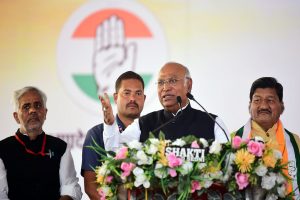What are your views about the recent amendment passed to the Maternity Benefit Act, 1961 by the Rajya Sabha, which proposes to increase the maximum maternity leave period from 12 weeks to 26 weeks?
It is a wonderful step. It would help the working women in continuing with their jobs even after their delivery. A longer leave period would also help women in nurturing their new born child properly. As rightly pointed out, this move to increase the duration of the leave period becomes even more important given the fact nuclear families are on rise now. However, much is still left to be done, for instance, the Bill does not bring within its ambit the women working in the unorganized sector.
What is your view on the following proposition?
Advertisement
Considering the fact that majority of private employers have profit motive, they are likely to feel discouraged to implement this new law providing for ‘optional’ and ‘fully paid’ leave primarily due to three reasons. First, unlike in countries such as Norway, Sweden, where maternity leave period is long, in India, employers alone bear the burden of the payment made during maternity leave.
This makes the implementation of the law expensive for the private employers. Second, since the period beyond six weeks is optional leave, the extra period which the employer allows one or a few female workers to avail shall practically becomes a benchmark for other female employees also. Therefore, the employer in order to avoid setting up of a precedent of availing of optional leave period by women employees is likely to pressurize the women workers to resume working once the mandatory leave period is over, or would permit the leave of little beyond that mandatory period. Third, private employers would be apprehensive about the possibility of misuse of the optional leave period by the female workers. This implies that since the optional leave period is fully paid, therefore but for the pressure from the employers to return early, women workers would be encouraged to avail greater duration of optional maternity leave period even when they do not mandatorily need it.
And it is the fully paid nature of the leave which would make it difficult for the employers to distinguish between genuine applications and redundant applications for extension of maternity leave beyond the mandatory period.
Therefore, in order to play safe and to avoid the misuse of law by employees, employer would be apprehensive about extending the leave period.
I completely agree with the concern regarding the very high possibility of the non-implementation of the amended provisions. In fact, even prior to this proposed amendment, where the maternity leave period is a maximum of 12 weeks, a) the employers are not willing to implement the law and b) my field research has shown how they discriminate against women at the hiring stage. Women whom I have surveyed have told me how their employers are not willing to implement the law. I think the main reason is that the law provides for the employers alone bearing the burden of the payment made during the leave period. Therefore, the government should share the costs involved along with the employers.
Further, even the employees should be asked under the law to contribute some amount in installments. We need to learn from countries such as Sweden, Denmark, Croatia, etc. where this burden of costs is not solely borne by the employers. Further, the payment during this leave period can also be brought as an activity under the company's Corporate Social Responsibility. Furthermore, the employers should also be permitted to meet the costs involved through employees’ insurance schemes. We also need to take cue from the way in which the employment benefits are provided under the ESI Act in India.
What are your views on the suggestion that the duration of the fully paid mandatory leave period should vary for a) white collar and blue collar workers, b) the birth of twins and the birth of a single child, c) for normal and cesarean delivery, unlike the present situation where the period is same under all circumstances?
I think that we first need data before any such step could be taken. I believe that it is not fair to discriminate between white and blue collar women workers here.
Do you think that in order to ensure better implementation of the law by the employers the extended maternity leave period should be partly paid?
No, I do not fully agree with this suggestion. This is due to several reasons. First, in India, majority of women are working because they need to earn money for their families. Therefore, making the leave partly paid even during the optional leave period would partly defeat the purpose behind bringing in this amendment. Further, I do not think that the leave period of 26 weeks is too much. However, I believe that the optional leave period can be made partly paid if the lawmakers choose to extend the duration of the leave period beyond 26 weeks. It depends upon the health of mother and child. Apart from this crèche facility must be made mandatory in all the workplaces irrespective of the age of a child, considering the fact that school and office timings are not matching.
Second, the leave period cannot be partly paid because it would have adverse effect on working women who are single mothers, widows, or thos whose husbands are unemployed or underemployed. Third, during the pre-natal and the post-natal period, the financial costs increase for any family, therefore, making of part payment may act to the detriment of the affected women as fall as their families. Therefore, according to me the leave shouldn't be made partly paid for any duration.
Kindly provide your comments on the suggestion that the optional maternity leave period should be made a partly paid period, and at the same time, the law must provide for optional and fully paid paternity leave for the period when the women’s mandatory or extended maternity leave period, whichever is earlier, expires. This would not only ensure that availing of this leave by men would practically increase the period of fully paid leave for the family but also would this provision create ‘nudge effect’ for stimulating the social change of increasing the role of fathers in nursing the child.
Though this is a good suggestion, nevertheless, several points have to be taken into consideration. Paternity leave should be introduced for all fathers irrespective of the fact whether their wives are working or not. This will promote work life balance and will also accord importance to the unpaid work. Parental leave policies can have an important impact on gender equality, both at workplace and with respect to sharing child care responsibilities at homes. In the absence of paid parental leave policies, traditional gender roles that involve women as “caregivers” and men as “providers”, and the typically lower earnings of mothers (relative to fathers) in the labor market, create strong incentives for women to reduce their employment and take on a large majority of child care responsibilities.
Further, with respect to the suggestion regarding the implementation of the paternity period, we have to take into consideration the fact that a) some women are single mothers and thus they cannot benefit by this suggestion, b) in cases where husbands are unemployed, this suggestion won't do good, and c) in cases where the husbands are underemployed or they earn less than their wives, this suggestion would not bring great benefits for the working women's families.
Do you think the employer is justified under the law in requesting women employees to come back to work while the optional leave period is ongoing, if the medical reports show that such women are healthy to resume their work?
Yes, why not? However, for this to be justified it is extremely important that such employers have proper crèche facilities and other infrastructure in place to ensure that these mothers get to take some rest and nurture their new born child.
Do you espouse that given the culture in India, India should provide for optional grandparents leave period like Poland does?
This seems to be a very good suggestion. However, much research needs to be done before this suggestion can be incorporated. We need to do surveys on joint families. Further, we have to think then how would the law account for breast feeding by the mothers in that case.
The interviewer is a third year student of the West Bengal National University of Juridical Sciences, Kolkata.
Advertisement











